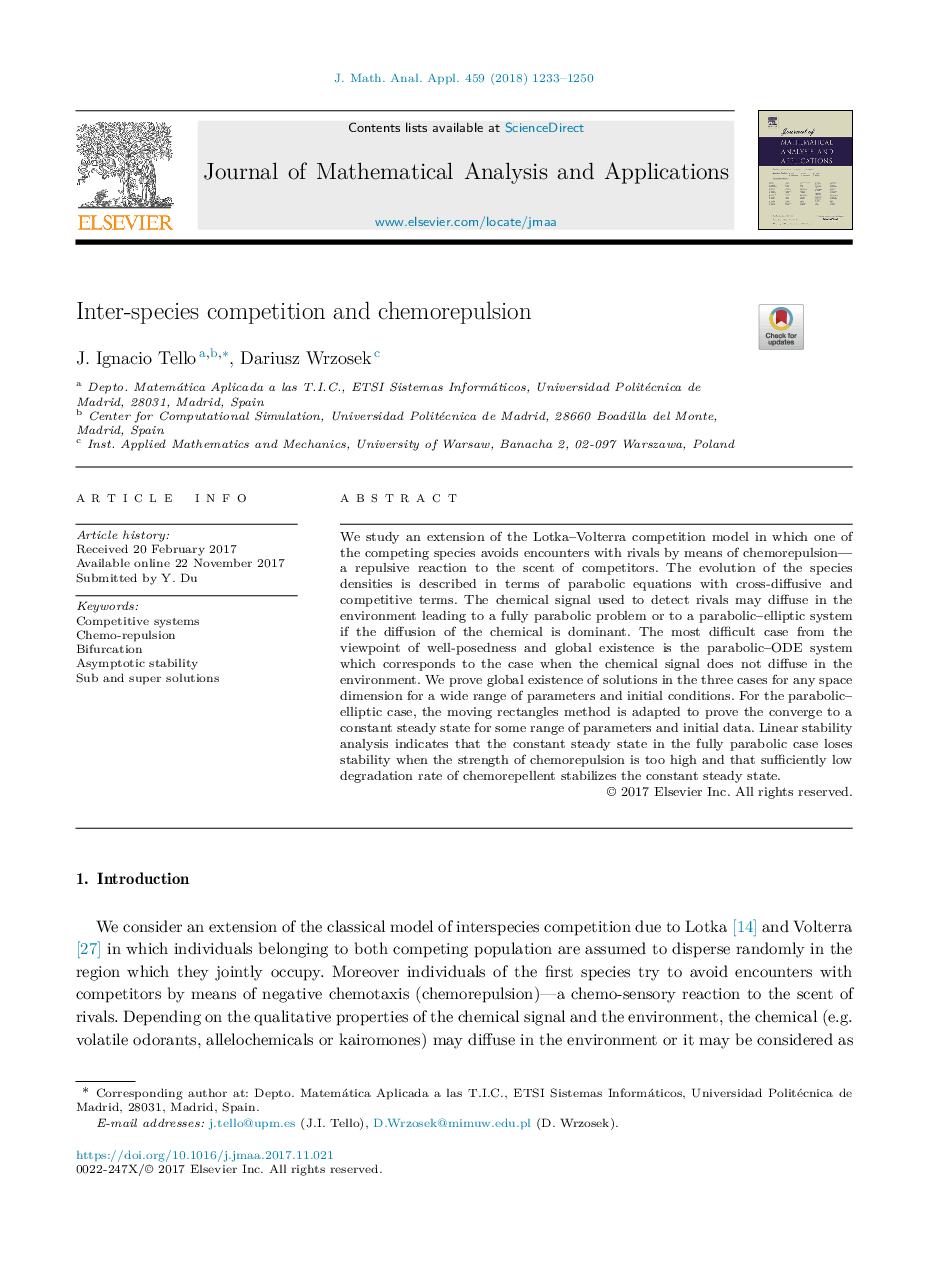| Article ID | Journal | Published Year | Pages | File Type |
|---|---|---|---|---|
| 8900224 | Journal of Mathematical Analysis and Applications | 2018 | 18 Pages |
Abstract
We study an extension of the Lotka-Volterra competition model in which one of the competing species avoids encounters with rivals by means of chemorepulsion-a repulsive reaction to the scent of competitors. The evolution of the species densities is described in terms of parabolic equations with cross-diffusive and competitive terms. The chemical signal used to detect rivals may diffuse in the environment leading to a fully parabolic problem or to a parabolic-elliptic system if the diffusion of the chemical is dominant. The most difficult case from the viewpoint of well-posedness and global existence is the parabolic-ODE system which corresponds to the case when the chemical signal does not diffuse in the environment. We prove global existence of solutions in the three cases for any space dimension for a wide range of parameters and initial conditions. For the parabolic-elliptic case, the moving rectangles method is adapted to prove the converge to a constant steady state for some range of parameters and initial data. Linear stability analysis indicates that the constant steady state in the fully parabolic case loses stability when the strength of chemorepulsion is too high and that sufficiently low degradation rate of chemorepellent stabilizes the constant steady state.
Related Topics
Physical Sciences and Engineering
Mathematics
Analysis
Authors
J. Ignacio Tello, Dariusz Wrzosek,
